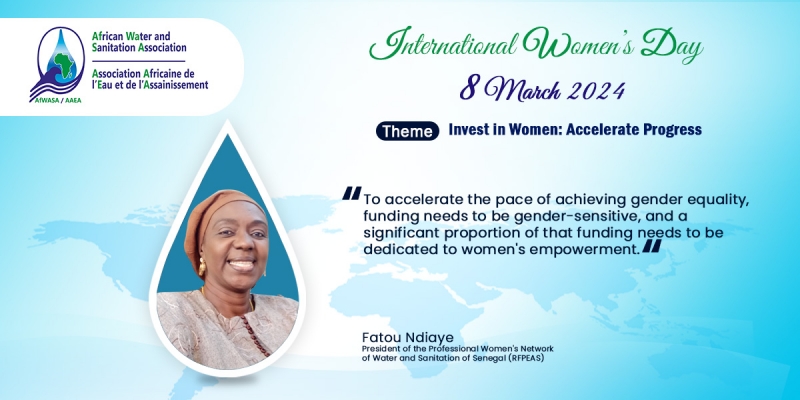In a world moving at the speed of political, economic, social, environmental and geostrategic change, women have had their long march. Conquests and new challenges punctuate this ordeal towards greater empowerment. We have come a long way since March 8, 1957! So many battles have been won to bring us to the International Women's Day again this year. The purpose of this commemoration is not to ratify yet another celebration or to let legitimate ambitions fall into oblivion. Rather, its vocation lies in the sowing of innovative ideas and the impetus of a transformative force to qualitatively change the daily lives of wives, sisters, friends, mothers, grandmothers, daughters and collaborators. Let us simply see the greatness of the Woman in all these emblematic figures of our daily lives, whom the present and posterity have a duty to celebrate as vectors of well-being for communities!
The fate of women calls into question the principles of a democratic society in which everyone aspires to equal opportunities. In this respect, we have come a long way. This journey is the mirror of our successes and of the constraints to be lifted. Steps have been taken towards gender equality or, at the very least, an improvement in the status of women. Our intention is not to promote a male-female opposition, which would be counterproductive in the co-construction of a space of excellence conducive to the fulfillment of all. Indeed, we applaud the results achieved in the fight for women's rights. An analysis of the logbook shows that, today more than ever, there are still significant steps to be taken to empower women and enable them to:
-
Reduce the arduousness of the tasks entrusted to them within the family and society;
-
Have income-generating activities;
-
Have free time to look after their families;
-
Or allow their daughters to have the right to the best education.
Executive and legislative powers are also called upon, as they formulate the laws that govern our daily actions. It is clear that the concerns mentioned above are all markers on the road to greater recognition of women's rights. Indeed, today, more than ever, investing in women's empowerment is an absolute necessity. It is the royal road to enable those who do not have a salaried job, those who are not educated, to get even further ahead. Certainly, efforts have been made or are in the process of being made. However, it is imperative that the pace be stepped up, so that giant strides can be made in the quest for equality or, at the very least, equity. Serving women means taking care of society. Progress in empowering women will benefit the family first and, to a greater extent, society as a whole. Ultimately, empowerment will reduce poverty.
There is still a long way to go. The right tempo for the right cause. This justifies the apt use of the word "accelerate". To accelerate the pace of achieving gender equality, funding needs to be gender-sensitive, and a significant proportion of that funding needs to be dedicated to women's empowerment.
Bastions have been conquered in the area of wage taxation here, or parental authority elsewhere. We have to admit, however, that resistance is still emerging, strengthened by psychological and sociological barriers that stand in the way. For example, women are fighting for access to land. Unfortunately, when they do have access to land, they still use the old methods of cultivation, which can certainly generate income if the necessary equipment is installed. In this case, they will be able to sow larger areas, have bigger harvests, more income and more free time to take care of their families and enable their daughters to go to school and be better educated. This is the virtuous circle that multiplies and regenerates the ambition that will take women to the heart of economic initiatives and to the pinnacle of political and social success.
Today, more than ever, there is an urgent need to invest in women's empowerment. This investment, more than a necessity, is becoming a human right and a means of putting an end to the poverty that is slowing down any process of social, economic and political emancipation.
We still have a long way to go. However, we, women, must not give up the fight for gender equality. Our fight must be permanent, and the results must benefit the family and society. The income generated must not be squandered on ceremonies, but must rather enable women to become increasingly emancipated.
This is the royal road to promoting models of women freed from all social yokes and prejudices of inability to say, do and succeed. It is a way of showcasing women's skills on a permanent basis and beyond.
Ms. Fatou NDIAYE

 English
English  Français
Français 
